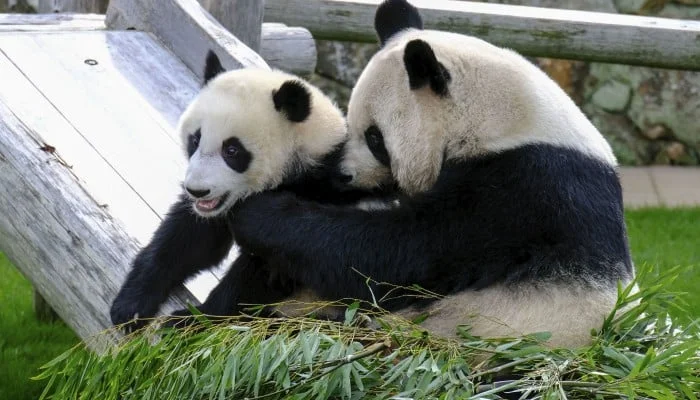
The End of an Era: Japan’s Pandas Set to Return to China
The impending return of four giant pandas from Japan to China has triggered a wave of emotions among animal lovers and local residents. The pandas, currently residing at Adventure World in Shirahama, Wakayama prefecture, will depart at the end of June as part of an agreement tied to a joint panda conservation project that has been ongoing since 1994. This moment not only highlights the fragility of international wildlife agreements but also the deep connections formed between animals and their caretakers.
Adventure World announced the bittersweet news on April 24, confirming that all four pandas – Rauhin, Yuihin, Saihin, and Fuhin – would be returned to their homeland soon. The decision to send them back before the lease expires in August is aimed at protecting their well-being during Japan's sweltering summer. The news has prompted an outpouring of sorrow on social media, with emotional remarks such as, "I almost cried watching the news," highlighting the bond the public feels towards these remarkable animals.

Over the course of the three-decade partnership, Adventure World has successfully raised 17 pandas, becoming a beacon of panda conservation efforts. Koji Imazu, the park’s director, expressed hopes of continuing negotiations with China to lease more pandas in the future, signaling optimism despite the impending departure. The significance of these pandas as a tourism draw for Shirahama cannot be understated; local businesses lament about the potential impact on foot traffic and sales. One souvenir shop owner stated, "If the pandas are all gone, we’ll definitely feel the impact. We really need pandas, even if it’s just one."
Meanwhile, the remaining two pandas in Japan, Lei Lei and Xiao Xiao at Tokyo’s Ueno Zoo, are also facing their return to China in February 2026. This looming absence raises critical conversations about Japan's future relationship with these cuddly yet critically endangered creatures. Historically, pandas have served not just as a tourist attraction but also as symbols of diplomacy and cultural exchange. Their journey began in 1972, when China gifted two pandas to Japan, marking a pivotal moment in diplomatic relations.
The sadness surrounding the pandas' departure reflects a larger narrative about wildlife conservation and the emotional connections humans form with animals. As we bid farewell to these gentle giants, we are left to ponder: How can we continue to foster our relationship with wildlife in a way that honors their needs and cultural significance?
What are your thoughts on the return of the pandas to China? Will it affect your view on wildlife conservation in Japan? We'd love to hear your opinion and encourage you to share your reflections in the comments below.